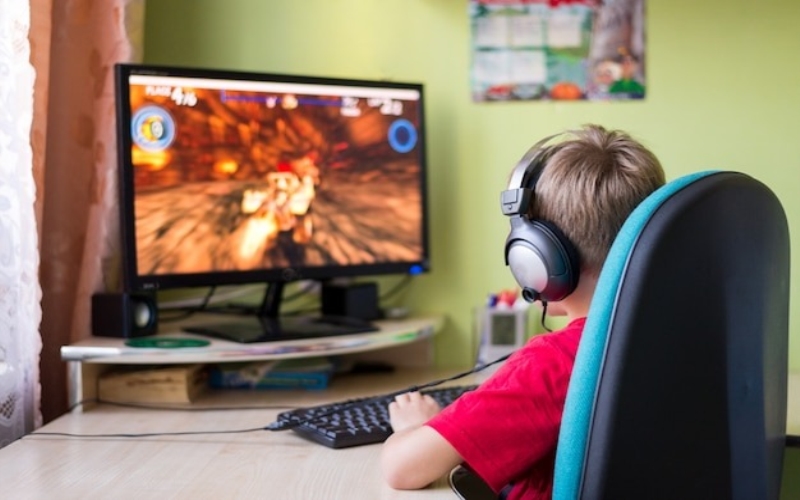Online บาคาร่า เว็บตรง gaming has become an integral part of modern entertainment, offering immersive experiences and social interactions that captivate millions of players worldwide. However, for some individuals, what begins as a hobby can spiral into an addiction, consuming excessive time and energy and impacting various aspects of their lives. Understanding the psychology behind online gaming addiction is crucial for addressing this growing concern and developing effective interventions to support those affected.
The allure of online gaming lies in its ability to provide players with a sense of achievement, social connection, and escape from reality. Many games are designed to reward players for their accomplishments, whether through leveling up, unlocking new content, or defeating opponents. These rewards trigger the release of dopamine in the brain, the neurotransmitter associated with pleasure and reinforcement, reinforcing the desire to continue playing.
Moreover, online บาคาร่าเว็บตรงไม่ผ่านเอเย่นต์ games often feature social elements that allow players to connect with friends and strangers alike. Whether through cooperative gameplay, competitive matches, or virtual communities, these interactions fulfill fundamental human needs for belonging and socialization. For individuals who may struggle with social anxiety or have difficulty forming relationships in the offline world, online gaming can provide a safe and supportive environment where they feel accepted and valued.
However, for some individuals, the appeal of online gaming can lead to problematic behaviors and negative consequences. Addiction is characterized by an inability to control one’s gaming habits despite experiencing adverse effects on various areas of life, such as work, relationships, and physical health. The Diagnostic and Statistical Manual of Mental Disorders (DSM-5) includes Internet Gaming Disorder (IGD) as a condition warranting further research, acknowledging the growing recognition of online gaming addiction as a legitimate concern.
Several psychological factors contribute to the development and maintenance of online gaming addiction. One such factor is escapism, where individuals use gaming as a means to avoid or cope with real-life stressors and challenges. The immersive nature of online games, coupled with the ability to assume different identities and roles, offers a temporary reprieve from the pressures of daily life. However, this escapism can become problematic when it interferes with important responsibilities and obligations.
Another contributing factor is the reinforcement schedule employed in many online games สมัครบาคาร่าเว็บตรง, where rewards are delivered intermittently and unpredictably. This variable reinforcement schedule is highly effective at maintaining behavior, as it keeps players engaged and motivated to continue playing in anticipation of the next reward. Over time, individuals may become increasingly dependent on these rewards, leading to compulsive gaming behavior and difficulty disengaging from the game.
Moreover, online gaming addiction can be exacerbated by underlying psychological issues such as depression, anxiety, or low self-esteem. For some individuals, gaming may serve as a coping mechanism to alleviate negative emotions or boost self-confidence. However, excessive gaming can perpetuate these problems by further isolating individuals from real-life social support networks and exacerbating feelings of loneliness and inadequacy.
Addressing online gaming addiction requires a multifaceted approach that addresses both the individual and the broader socio-cultural context in which gaming occurs. Education and awareness-raising efforts can help promote responsible gaming practices and empower individuals to recognize the signs of addiction in themselves or others. Mental health professionals can provide support and therapy to individuals struggling with gaming addiction, helping them develop healthier coping mechanisms and address underlying psychological issues.
Furthermore, game developers and industry stakeholders have a responsibility to design games that prioritize player well-being and minimize the risk of addiction. This may involve implementing features such as time limits, parental controls, and mechanisms for monitoring and managing in-game spending. Additionally, fostering a positive and inclusive gaming community can help reduce feelings of social isolation and loneliness among players, mitigating the need for excessive escapism through gaming.
In conclusion, online gaming addiction is a complex phenomenon influenced by a variety of psychological, social, and environmental factors. While gaming offers many benefits, it is essential to recognize the potential risks and take proactive steps to promote responsible gaming behavior and support those affected by addiction. By understanding the psychology behind online gaming addiction, we can work towards creating a healthier and more balanced gaming culture that prioritizes player well-being and enjoyment.

